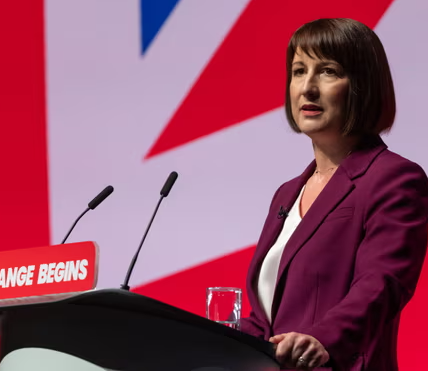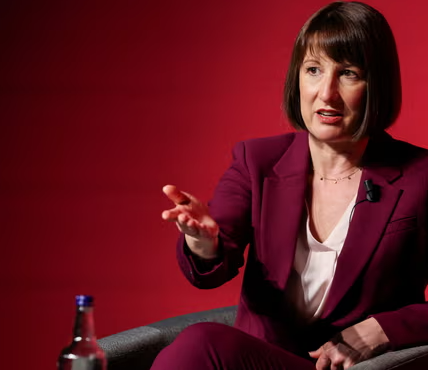After all four would-be leaders spoke against law change, both sides seek to sway waverers

A disability campaigner from Dignity in Dying at the Houses of Parliament in London on 29 April. Photograph: Ben Stansall/AFP/Getty Images
Supporters of an assisted dying law in England and Wales are battling to stop the issue from splitting along party political lines after all four Tory leadership candidates suggested they would vote against the historic change.
An all-important House of Commons vote on the issue could now be just weeks away after it was revealed that Labour MP Kim Leadbeater would be introducing a private member’s bill that would give some terminally ill adults the option of being helped to end their lives.
During the Tory party conference last week, leadership contenders Robert Jenrick, Kemi Badenoch, Tom Tugendhat and James Cleverly all raised concerns about a change in the law. Jenrick said he had been in favour of assisted dying legislation but had recently changed his mind.
Weeks of meetings, lobbying and engagement with MPs over the political conference season had meant that campaigners in favour of a law change were confident the issue would not become divided along party lines.
They have already gained the support of some Conservatives, including shadow foreign secretary Andrew Mitchell. He said it was “time for choice”, revealing that he had changed his opinion after witnessing what he described as the “cruelty and suffering inflicted by the blanket ban”.

Lord Forsyth, the former Tory cabinet minister, changed his mind after witnessing his father’s death in 2020. Former chancellor George Osborne and former Scottish Tory leader Ruth Davidson also support a change.
A major operation will now take place inside parliament by both sides of the debate to persuade colleagues to back their cause. Kit Malthouse, the former Tory cabinet minister and leading advocate for an assisted dying law, is inviting colleagues to talk through any questions and concerns.
While party leaders have made clear that MPs will have a free vote on the issue and there is no formal whipping operation, numbers are already being collated by both sides. Parliamentary meetings will intensify when details of the bill are announced later this month.
Keir Starmer has said he supports a change, though some of his cabinet – including health secretary Wes Streeting – say they continue to have concerns.
While supporters are confident that they have a much better chance of securing a majority in favour of a new law than in 2015, when the idea was comprehensively defeated, they recall a late surge of opposition ahead of that vote as some MPs became fearful of making the change.
This time, wavering MPs are being presented with three main arguments for supporting the introduction of assisted dying.
They are told that the status quo is a “horror show” in which some people feel they have to leave their families to travel abroad for help ending their lives, feel compelled to end their lives in other ways or suffer horrible deaths.
MP are also being informed that while palliative care should be improved, there are some conditions that even the highest standards of care cannot combat.
Finally, a law change is being presented as a win for autonomy and compassion, as expressed by broadcaster Esther Rantzen, who has said she would currently have to travel alone to Switzerland to end her life in the face of terminal cancer.
“Those MPs who either vote against or abstain have to recognise they are making a choice,” said one Tory MP. “The status quo is a choice, and it’s not a happy one.”
Safeguards will be crucial in securing the support of many waverers, but those opposed say these would be hard to enforce and that judging whether someone has less than six months to live is difficult in practice.
Jenrick said at the Tory conference that he now has concerns about the “unintended consequences” of an assisted dying law.
Badenoch said she supported a change in principle but did not “trust any government or civil service to be able to deliver this”.
Tugendhat said last week that he was “deeply uncomfortable” with assisted dying laws and that it was “immensely unlikely” that he would support one in parliament. Cleverly voted against assisted dying in 2015 and has not changed his view.




